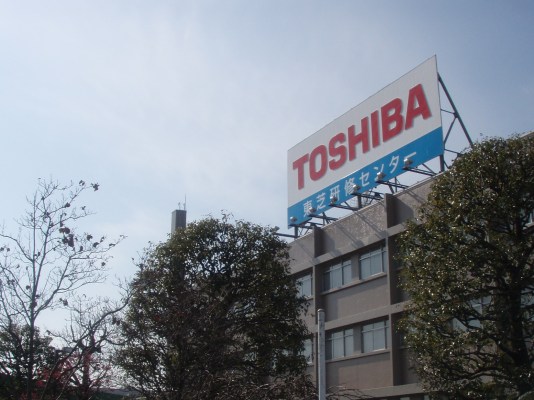The long-running saga over the future of Toshiba’s memory chip business — the world’s second largest supplier of NAND memory used in phones and PCs — took a big step forward after the Japanese company officially agreed [PDF] to an $18 billion sale to a consortium led by Bain Capital, which includes Apple among its backers.
A deal was agreed in principle earlier this month, with rival offers led by KKR and two Japanese funds rejected, and now Toshiba’s board has given its approval.
Toshiba is keen to sell its TMC (Toshiba Memory Corporation) business to offset loses from its bankrupted Westinghouse nuclear business which it fears may cause it to be delisted from the Tokyo stock exchange next year.
The deal is an important one, not just for Toshiba, but for the wider tech industry. Apple, for one, fears that rival Samsung, already the largest player in the memory space with 40 percent marketshare, could profit from the issues at Toshiba. It’s involvement in the bid — reportedly to the tune of $7 billion — centers around keeping the industry competitive.
The sale was raised as earlier as January this year, but a litany of bidders — including high-profile names like Google, Amazon and Foxconn — is among the reasons why the process has taken some time.
Now Toshiba has signed off an agreement that will see Pangea, a consortium led by Bain, take the business on but leave it to be run as a Toshiba subsidiary. Beyond Bain, the bid is backed by Japanese medical devices firm Hoya, chip firm SK Hynix and U.S. firms Apple, Kingston, Seagate and Dell.
Toshiba itself has pledged to reinvest 350.5 billion JPY ($3.1 billion) with Bain, Hoya, SK Hynix and the U.S. contingent down to provide 212 billion JPY ($1.8 billion), 27 billion JPY ($240 million), 395 billion JPY ($3.5 billion) and 415.5 billion JPY ($3.7 billion), respectively.
The consortium agreed to give Japanese firms Toshiba and Hoya more than 50 percent of voting power, to satisfy government concerns, while SK Hynix will be “firewalled” from accessing IP or other competitive information on the TMC business.
Though it has been agreed, the deal is by no means done.
It still requires anti-trust approval and the green light from a Japanese security perspective. Then there’s ongoing litigation between Toshiba and Western Digital to contend with.
Western Digital, which works with TMC via its SanDisk business, objected to rival chip firms and customers taking ownership of TMC because it would ‘weaken’ the business. It initially demanded the right to veto any deal and later joined an unsuccessful bid for TMC. The duo is now sparring over the transfer of three assets, however the consortium said its bid will go through regardless of the outcome.
Toshiba is looking to have the deal completed by March 2018, the start of the Japanese business year, to prevent any possibility that it will be booted from the Tokyo Stock Exchange.
